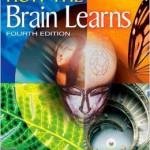
Research: In his Ted Talk entitled “5 Dangerous Things You Should Let Your Child Do,” Gever Tulley challenges us to reconsider allowing children to take risks that have been virtually eliminated by modern society. He argues that learning to play with fire, use a pocketknife, or take apart an appliance offers valuable learning opportunities and encourages children to develop their sense of self, their perspective on the world around them, and de-mystify daunting tasks.
Practice: We certainly won’t be throwing spears or playing with fire at school this year, but summertime offers a great window of opportunity to allow kids to stretch their zone of comfort by offering new experiences. As parents we can encourage them to take measured risk by allowing them time to explore and placing such opportunities within their reach.
 Research: In his model of how the brain learns,
Research: In his model of how the brain learns,  Research: A number of
Research: A number of  Staff highlights:
Staff highlights: